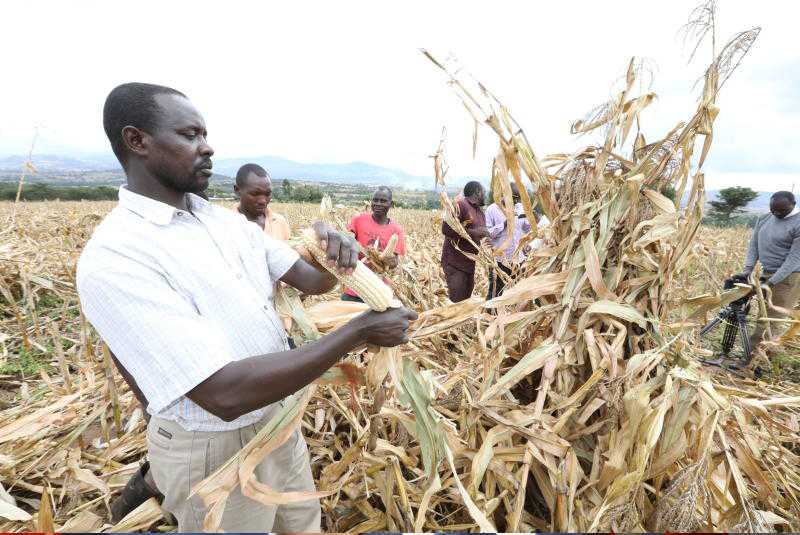×
The Standard e-Paper
Fearless, Trusted News

Jackson Kwambai in Kabomoi village, Uasin Gishu County, on October 17, 2018. [Kevin Tunoi, Standard]
Whether you choose to drive or walk in parts of Trans Nzoia and Uasin Gishu counties, you will notice large tracts of maize fields. Once upon a time, the acres meant the farmer was considered an influencer in the region’s economy. This is not the case anymore.